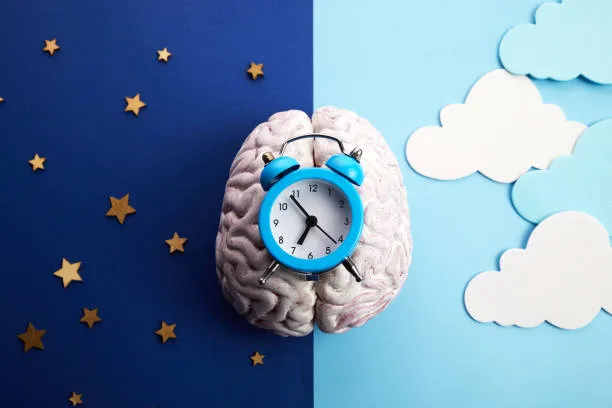
Good sleep is good for mental health
Great rest is fundamental for keeping health up with great emotional wellness. It plays a crucial role in regulating mood, emotion, and stress levels, as well as helping to improve cognitive function, memory, and concentration.
Over sleep, the brain works to consolidate and process information from the day, which helps to strengthen memories and improve learning. Adequate sleep is also necessary for the brain to properly regulate emotions and stress, allowing individuals to better cope with daily challenges.
Chronic sleep
Chronic sleep deprivation has been linked to a variety of mental health issues, including depression, anxiety, and an increased risk of developing mood disorders. Research has shown that people who get insufficient sleep are more likely to experience symptoms of depression and anxiety and are also at a higher risk of developing these conditions over time have.
On the other hand, good sleep hygiene and regular adequate sleep have been linked to improved mood and a reduced risk of developing mental health issues. This includes:
Reducing symptoms of depression and anxiety for health
1-Improve your stress management
2-Improving overall well-blithe ng
3-Enhancing cognitive function, memory, and concentration
The 4-Improving overall quality of life
Overall, good sleep is essential for maintaining good mental health, and it is important to prioritize adequate and consistent sleep as part of a healthy lifestyle.

Make 2023 the Year of Good Sleep for health by Practicing the following rules.
. Establish a consistent sleep schedule by going to bed and waking up at the same time every day, even on weekends.
. Create a comfortable sleep environment by keeping your bedroom dark, cool, and quiet.
. Leave screens for at least an hour before bedtime, as the blue light emitted by electronic devices can disrupt your body’s natural production of melatonin.
. Avoid caffeine, nicotine, and alcohol close to bedtime, as they can interfere with your ability to fall asleep.
. Exercise regularly during the day to promote better sleep at night.
Rules
. Try relaxation techniques such as deep breathing, meditation, or yoga before bedtime to help calm your mind and prepare for sleep.
.Practice good sleep hygiene by making sure your mattress and pillows are comfortable and supportive.
. Avoid eating heavy meals close to bedtime and try to make your last meal of the day a light one.
. Limit your exposure to bright lights, even in the evening, to help regulate your body’s natural production of melatonin.
Make sure your sleep environment is quiet and comfortable and consider using earplugs or a white noise machine if necessary.

Have a bedtime routine!
Having a bedtime routine can be an effective way to promote better sleep. A bedtime routine can help signal to your body that it’s time to wind down and prepare for sleep, making it easier to fall asleep and stay asleep. Here are a few tips for creating a bedtime routine:
Establish a consistent bedtime: Try to go to bed and wake up at the same time every day, even on weekends. This will assist with directing your body’s inner clock and make it more straightforward to nod off around evening time.
Create a relaxing atmosphere: Dim the lights, lower the temperature, and make sure your bedroom is quiet and comfortable. This can help signal to your body that it’s time to relax and fall asleep.
Avoid screens: The blue light emitted by electronic devices can disrupt your body’s natural production of melatonin, making it harder to fall asleep. Try to avoid screens for at least an hour before bedtime.
Relax your mind: Try different techniques such as deep breathing, meditation, or yoga to help calm your mind and prepare for sleep.
Prepare for the next day: Instead of lying in bed worrying about what you must do the next day, make a list of tasks you need to complete the next day.
Read a book or listen to music or podcast: Reading a book or listening to music or podcast can help distract your mind from daily stressors and help you relax before sleep.
Follow
Follow your routine: Try to stick to your bedtime routine as much as possible, even on weekends, to help regulate your body’s internal clock and improve your sleep.
Remember that everyone is different and it may take some experimentation to find a bedtime routine that works for you. But sticking to a consistent routine will help improve the quality of your sleep in the long run.

Stay off electronics before going to bed!
Staying off electronics before going to bed is an important aspect of good sleep hygiene. The blue light emitted by electronic devices, such as smartphones, tablets, and computers, can disrupt your body’s natural production of melatonin, making it harder to fall asleep.
When you use these devices, the blue light suppresses the production of melatonin, which is a hormone that regulates the sleep-wake cycle. This can make it harder to fall asleep, and can also lead to insomnia, or difficulty staying asleep.
To avoid these negative effects, it’s recommended to stop using electronic devices at least an hour before bedtime. This will give your body enough time to start producing melatonin, making it easier to fall asleep.
Additionally, it’s also important to avoid bright lights in general in the evening, as this can also disrupt your body’s natural production of melatonin.
Other ways to avoid electronic devices before bed are:
. Listening to music or podcast instead of watching TV
. Reading a book instead of using a tablet
. Using a traditional alarm clock instead of a smartphone alarm
. Keep your phone in another room or on silent mode
By following these recommendations, you can help regulate your body’s natural production of melatonin, which can improve the quality of your sleep and help you fall asleep more easily.

Exercise is best during the day.
Exercising during the day is generally considered to be beneficial for promoting better sleep at night. Regular physical activity is known to help regulate the body’s internal clock, making it easier to fall asleep and stay asleep.
During the day, physical activity increases the day temperature and metabolism, which makes it harder to fall asleep at night. But when the body temperature drops again in the evening, it signals to the body that it is time to sleep.
Research
Research has also shown that regular physical activity can help reduce symptoms of insomnia and improve the overall quality of sleep. In addition, regular exercise can also help reduce stress and anxiety, which are common causes of sleep problems.
It is recommended to engage in moderate physical activity, such as brisk walking or cycling, for at least 30 minutes per day, preferably in the morning or afternoon.
It’s important to note that vigorous exercise close to bedtime can actually make it harder to fall asleep. It’s best to avoid intense workouts in the evening, as the body takes longer to cool down and relax after an intense workout.
Overall, regular physical activity during the day is a great way to promote better sleep, but be mindful of the timing of your workouts to ensure they don’t interfere with your sleep.

